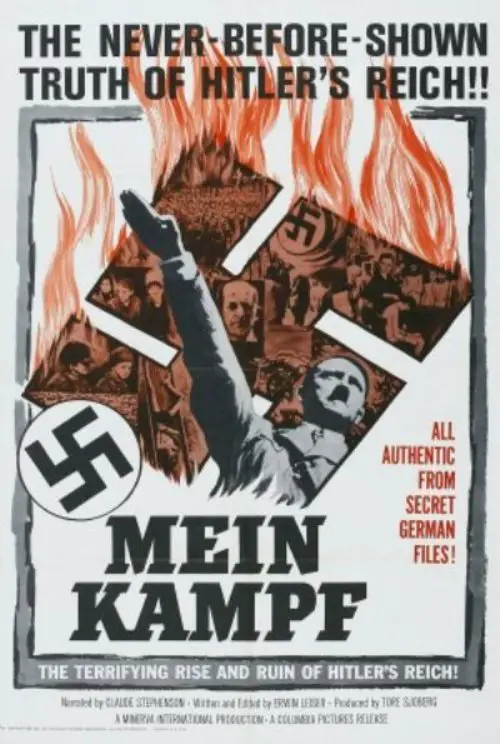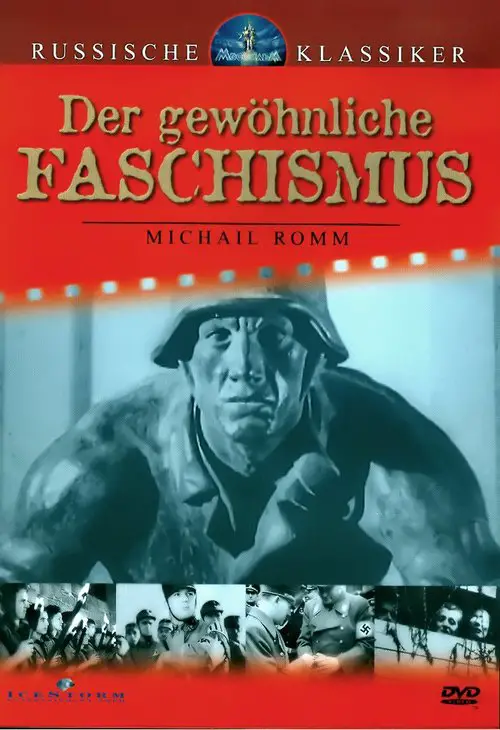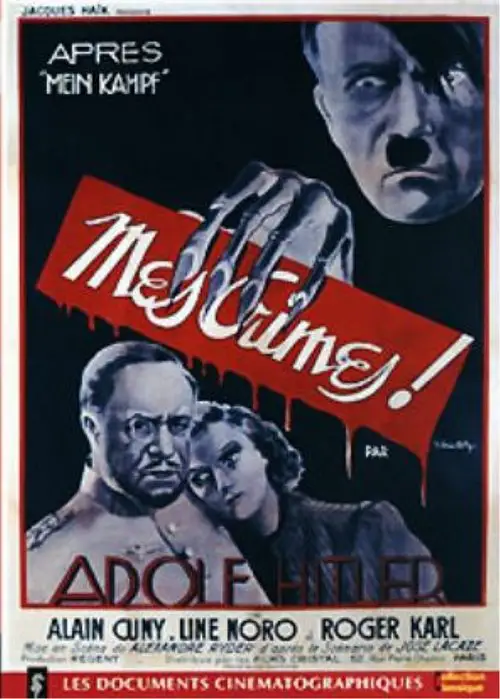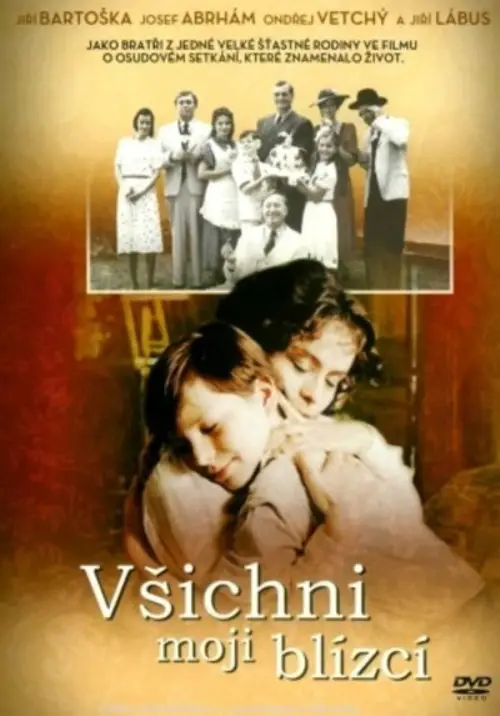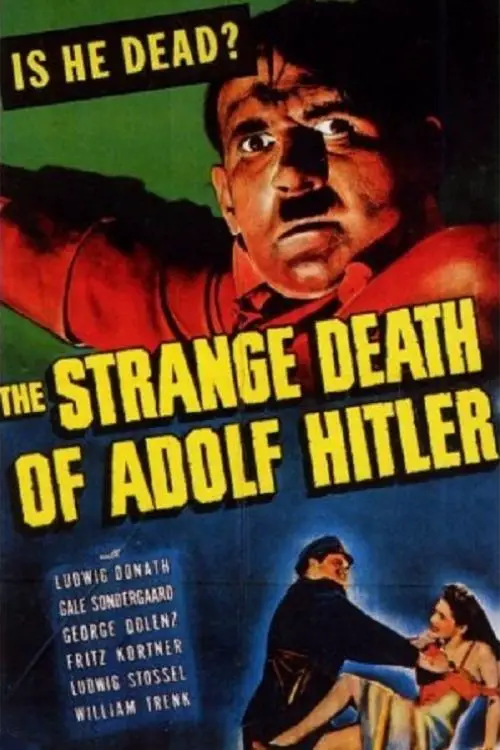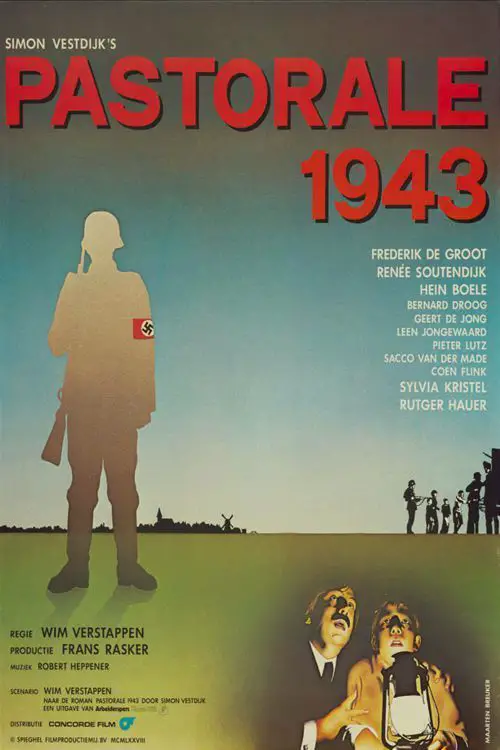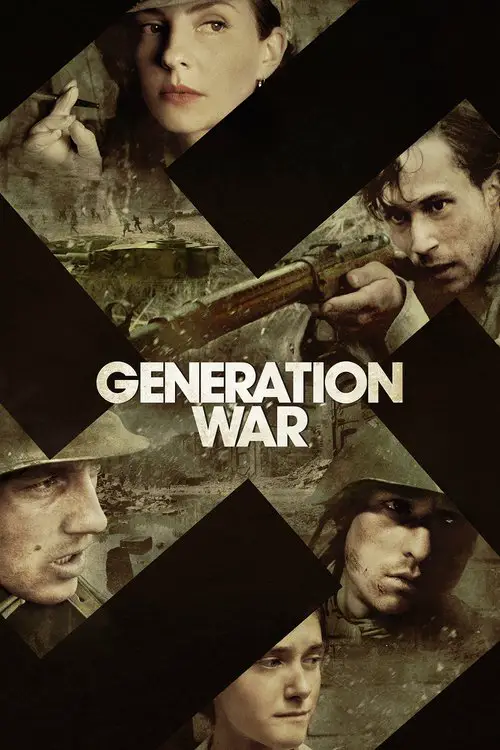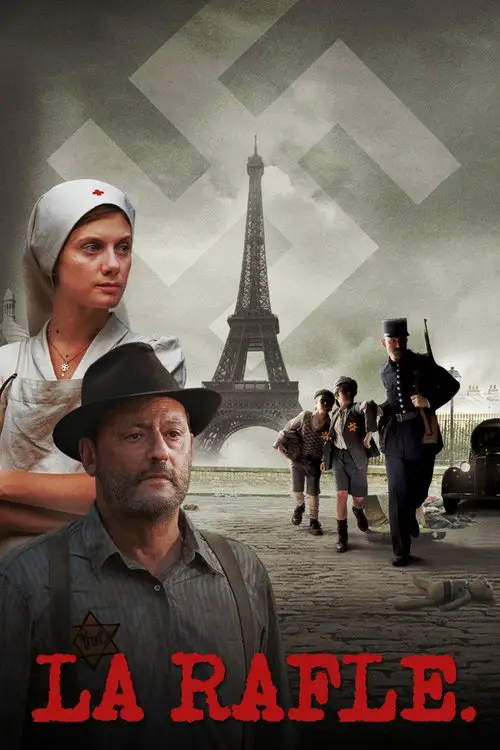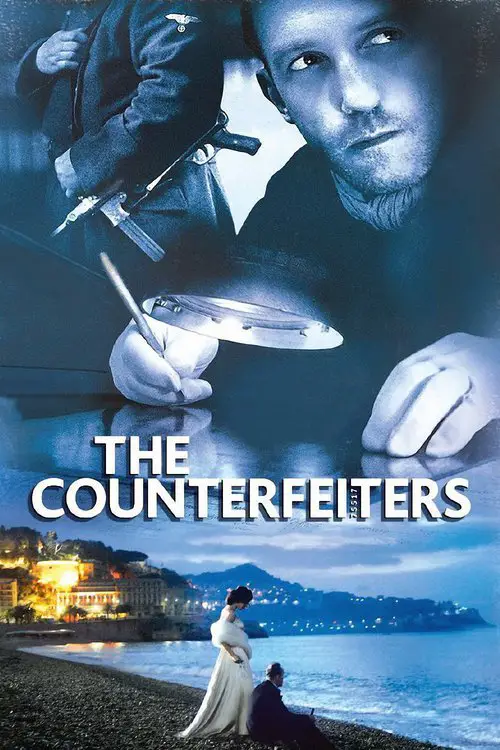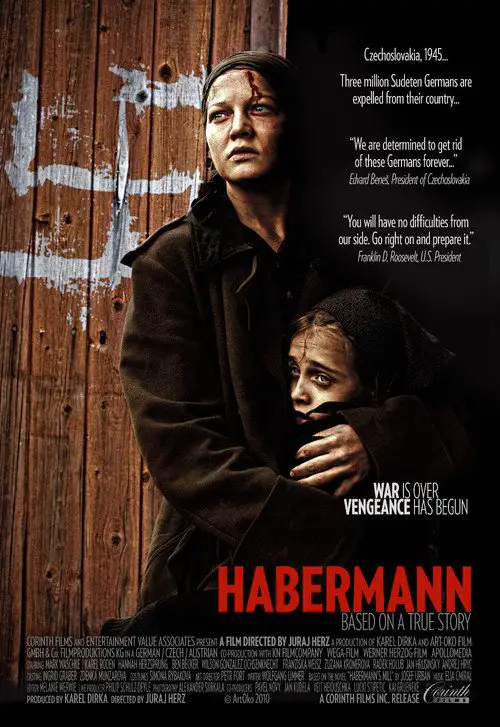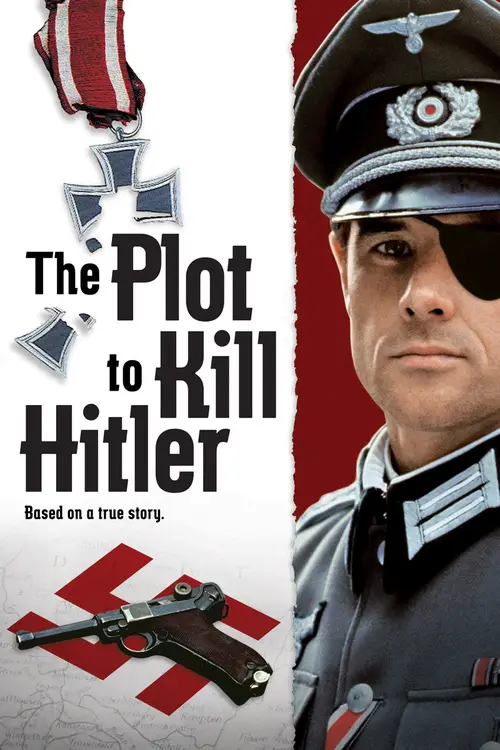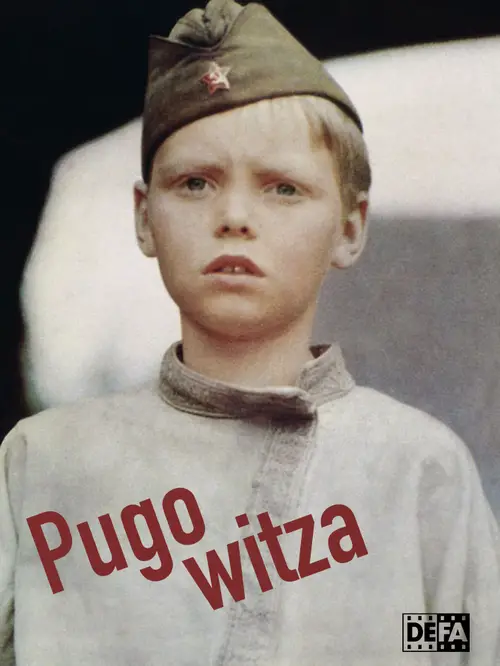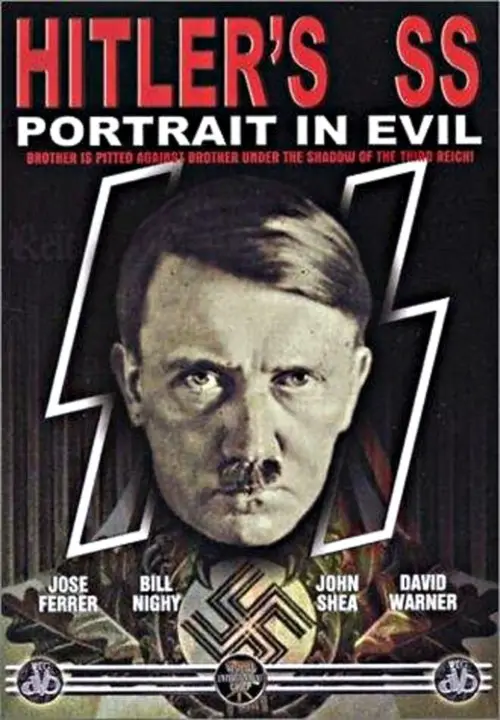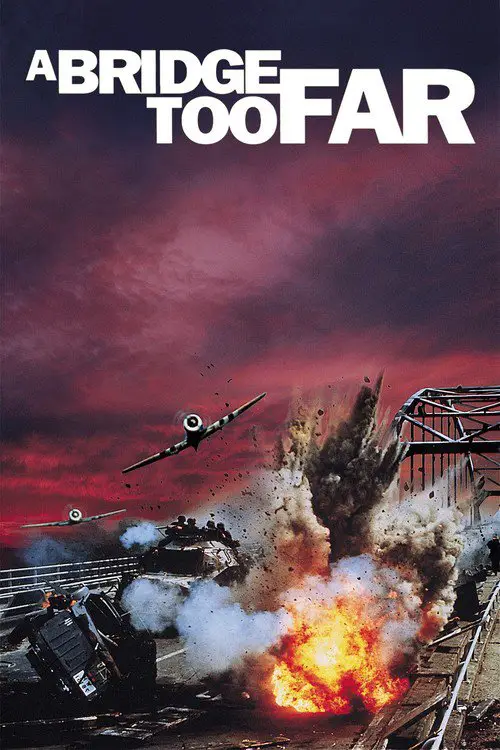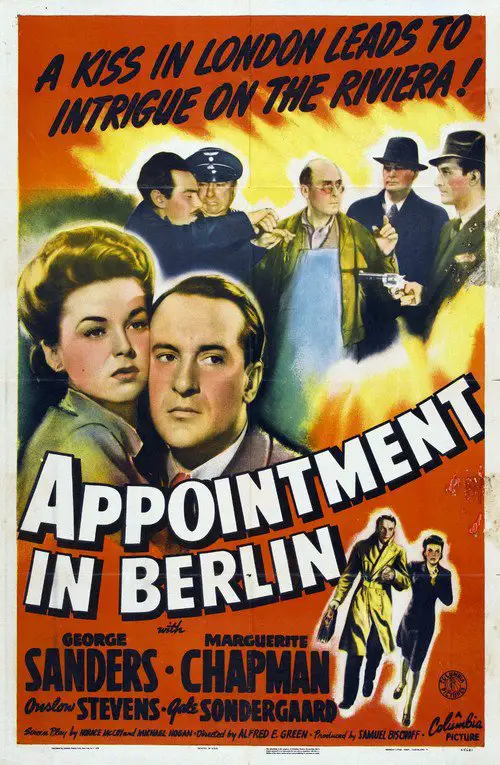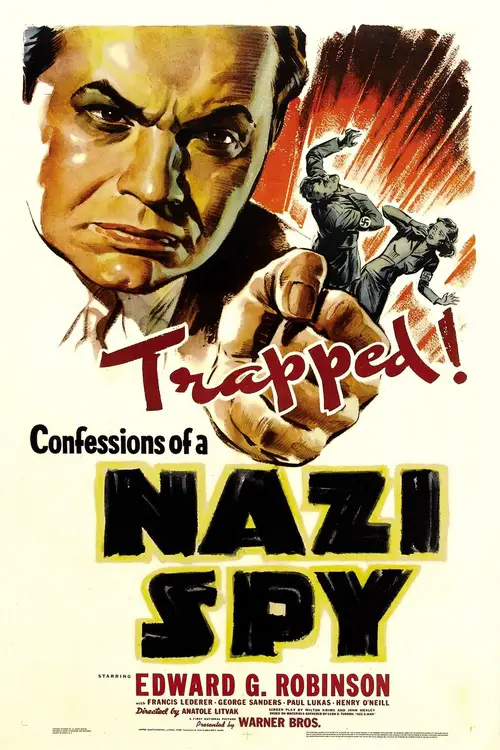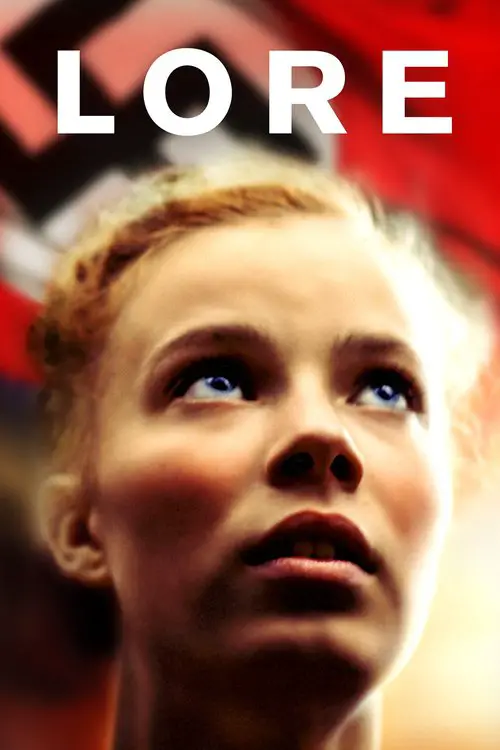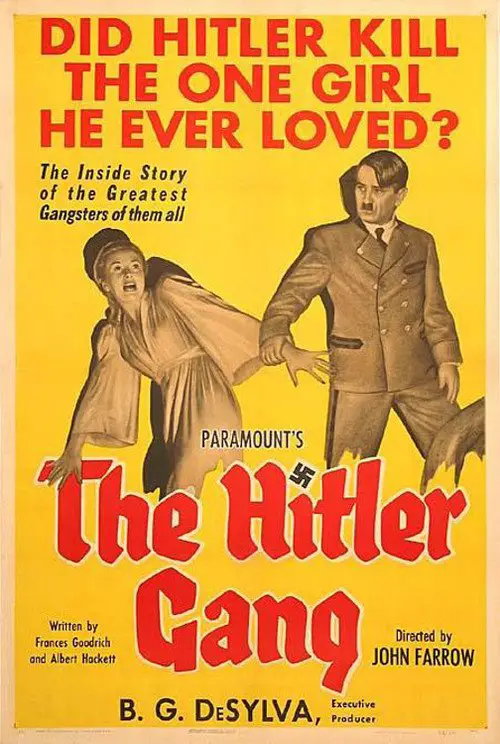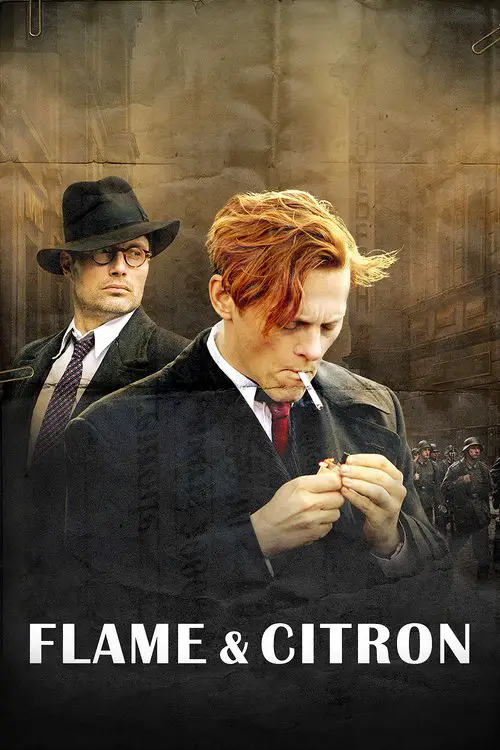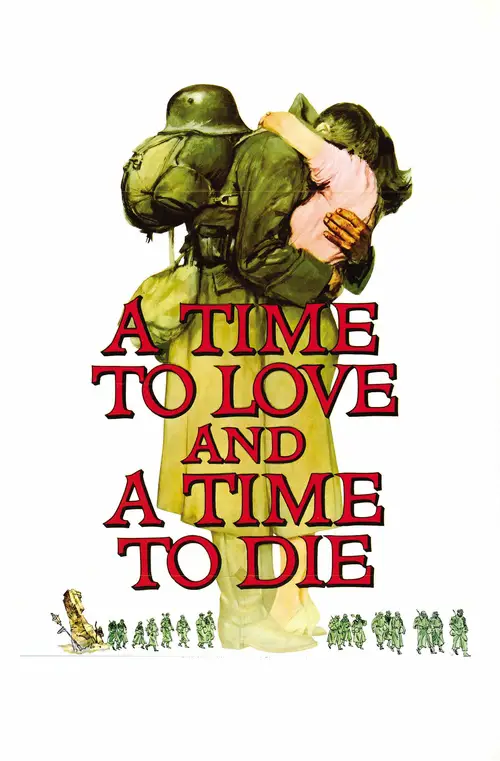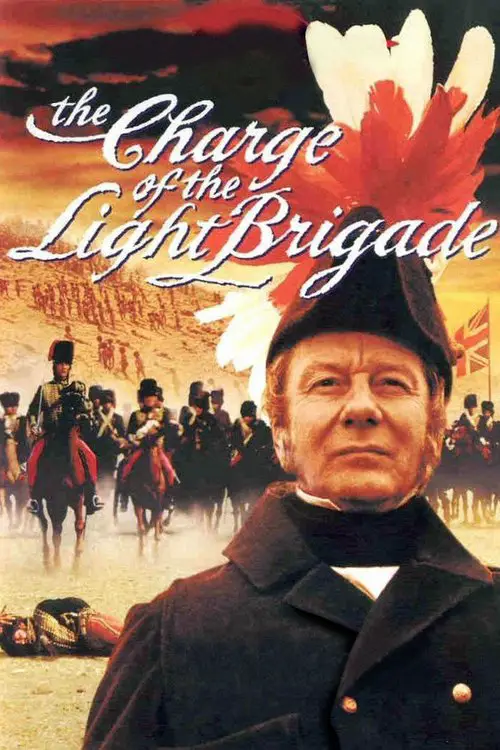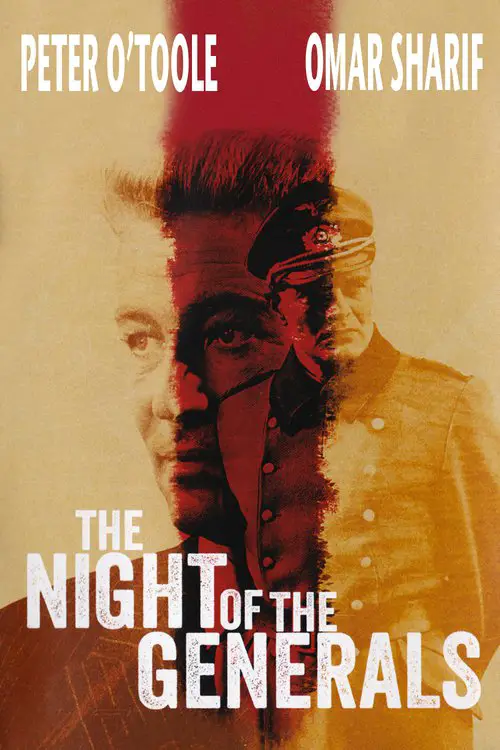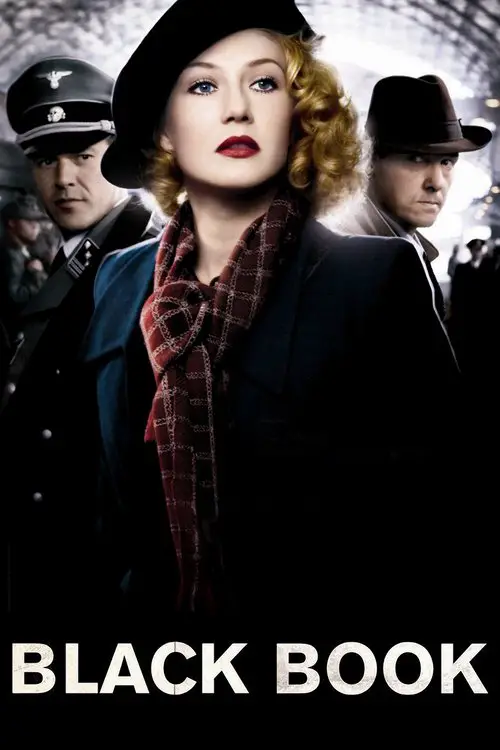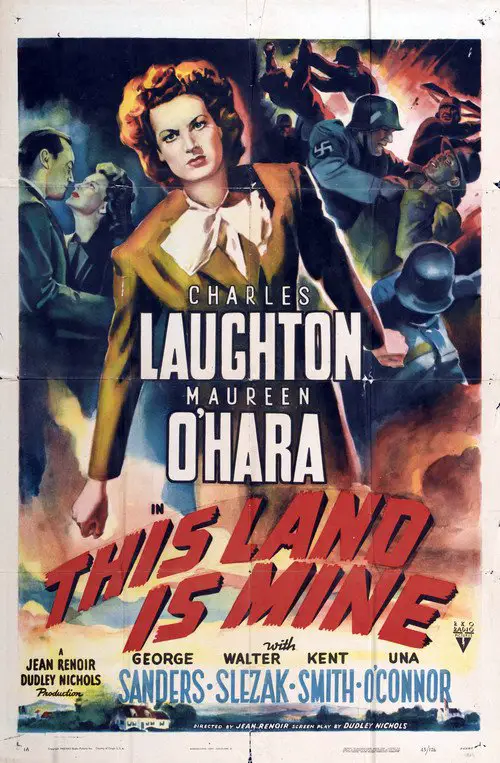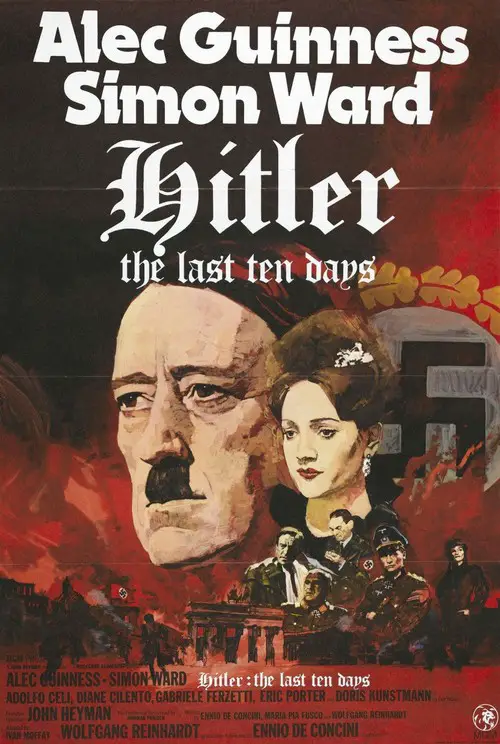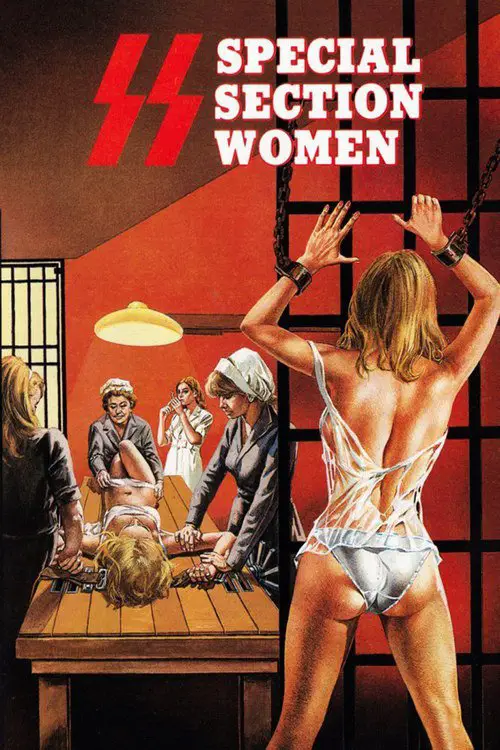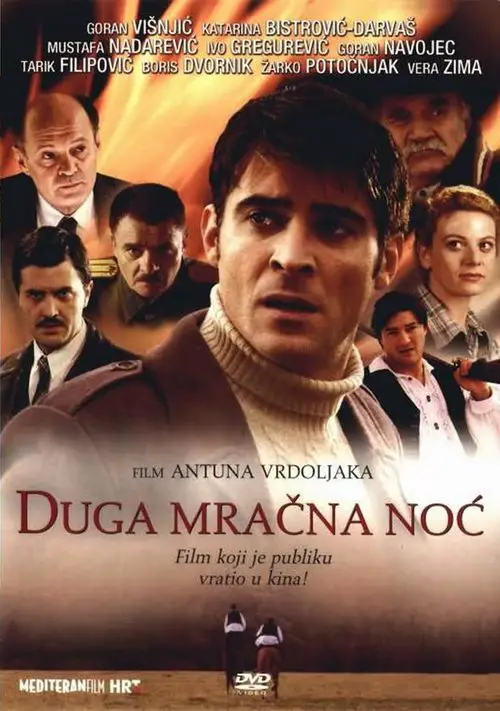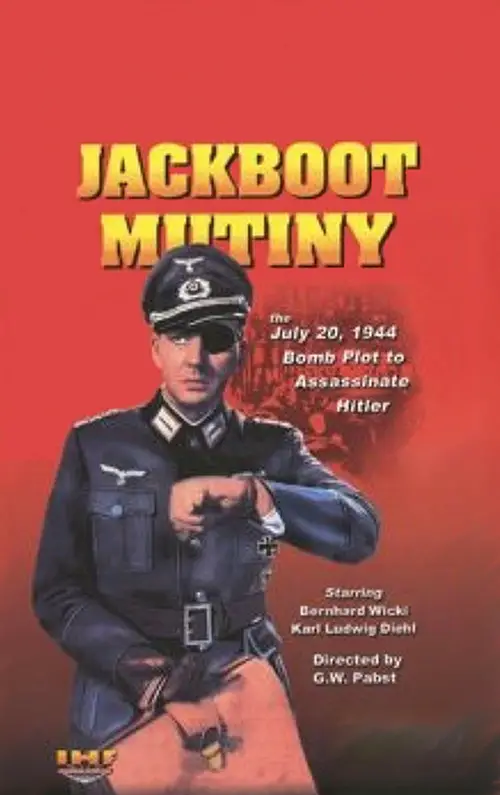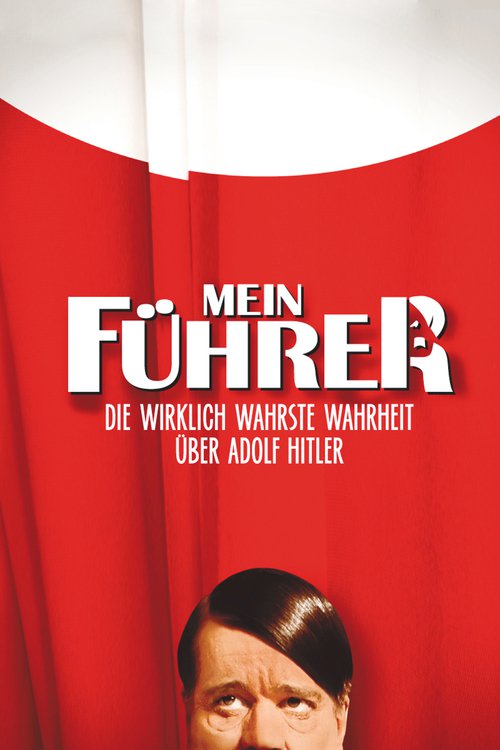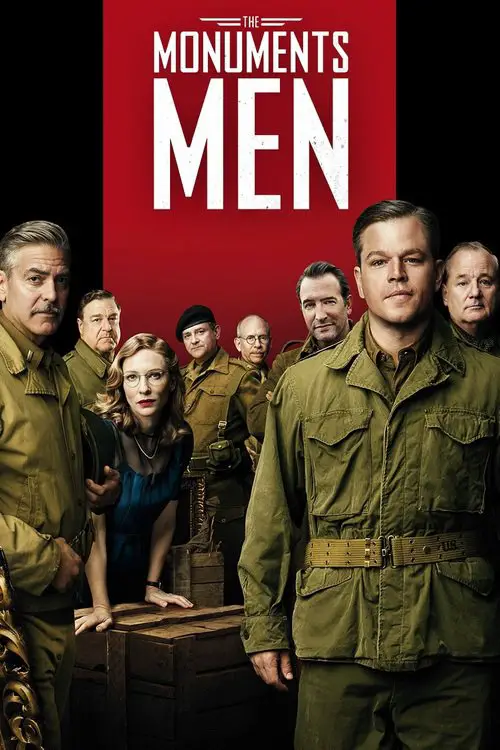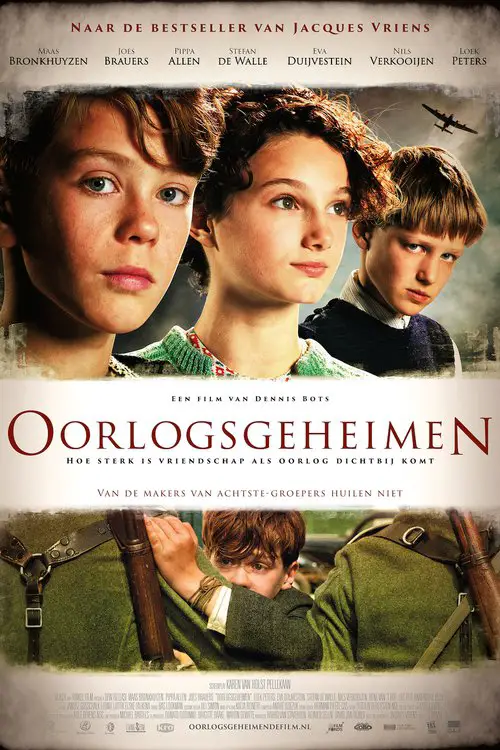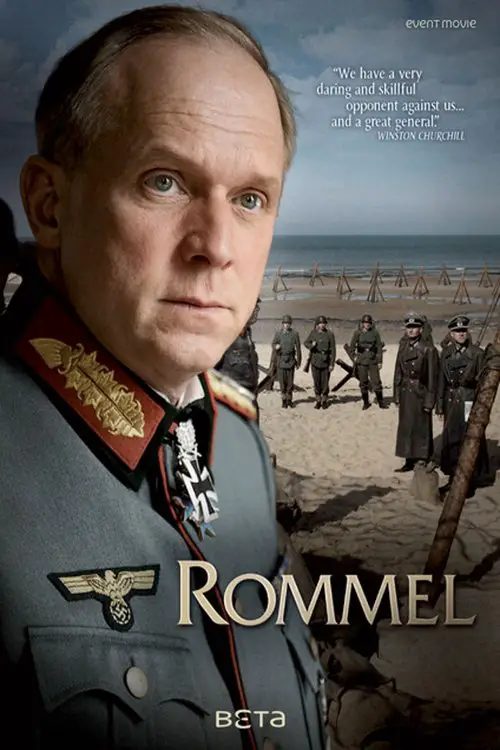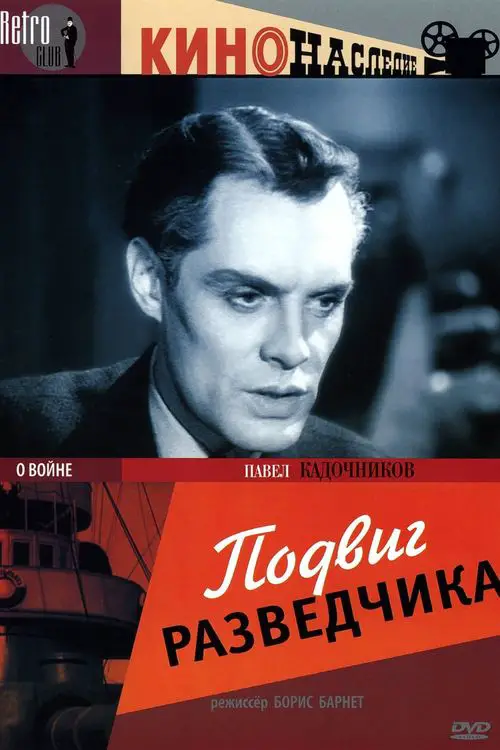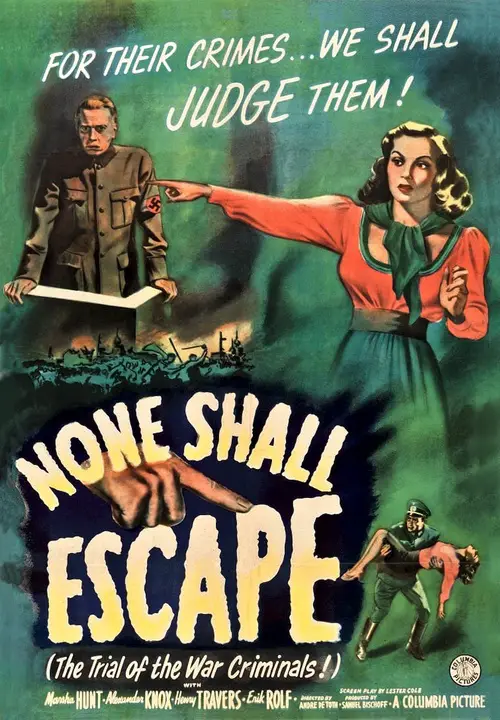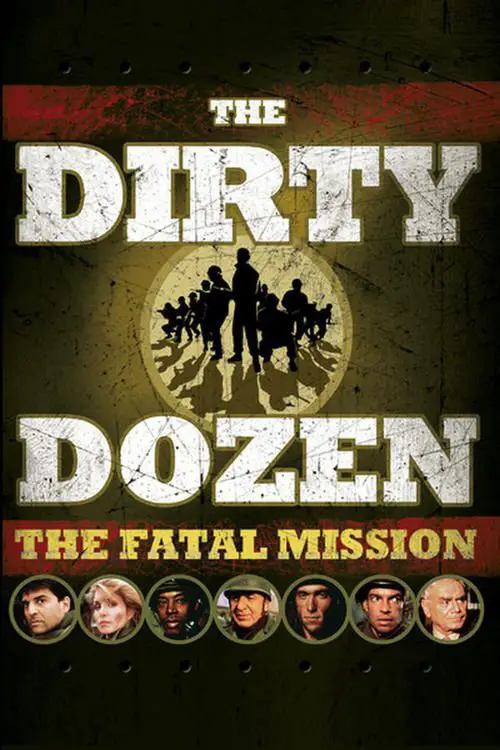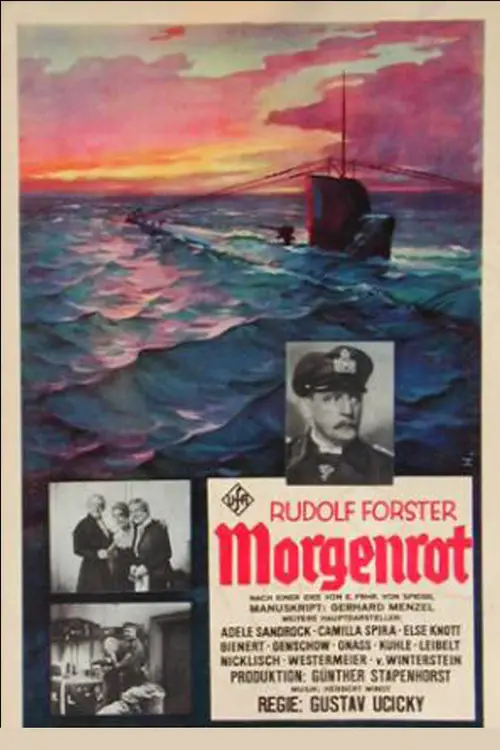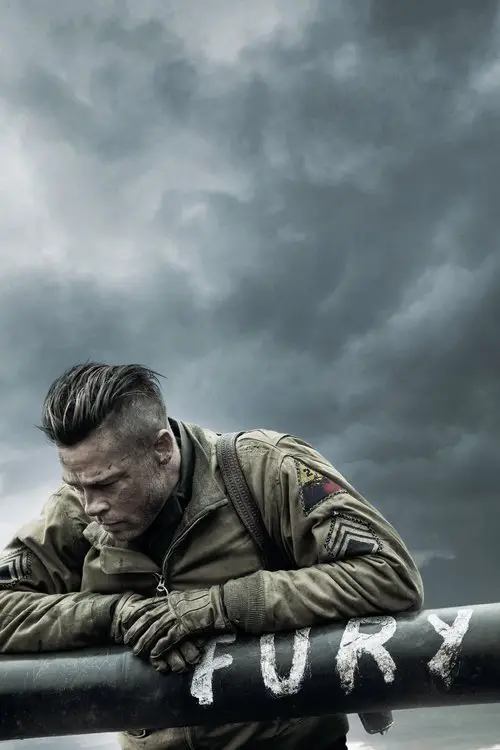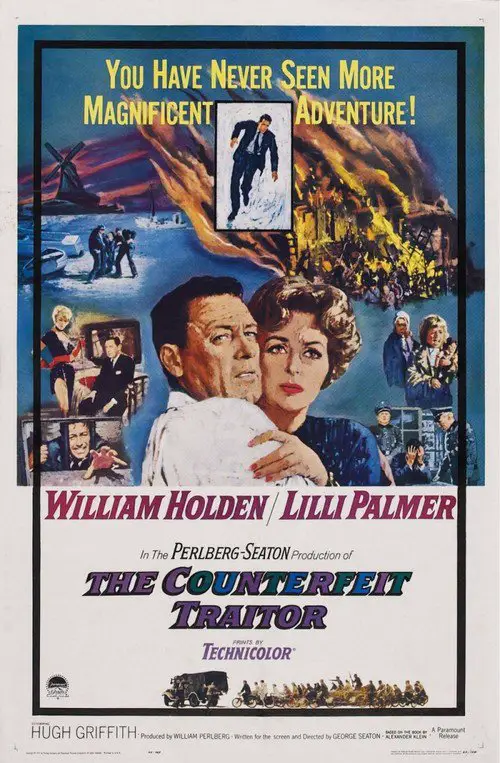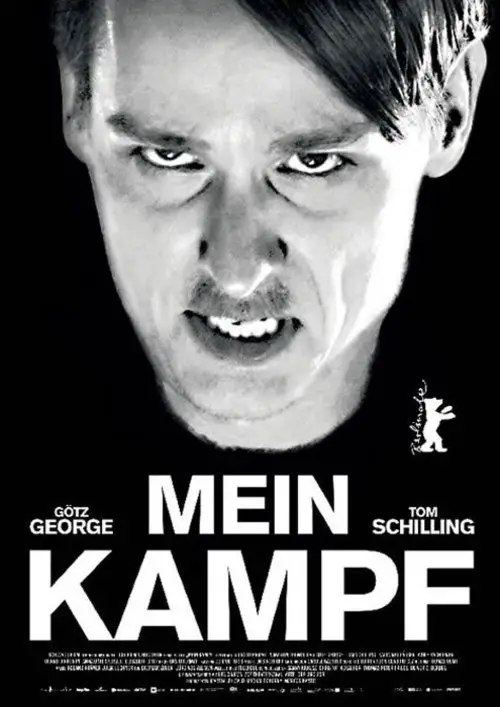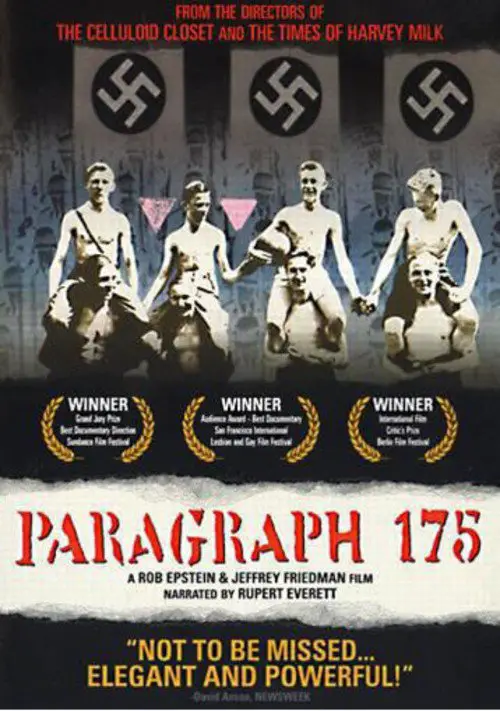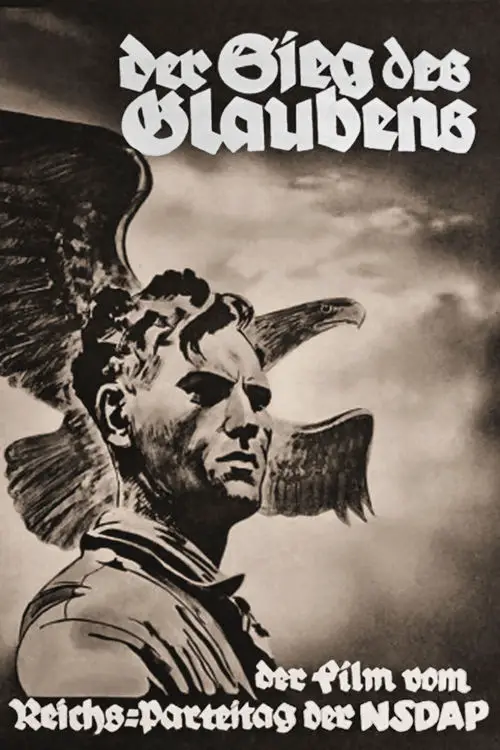After Mein Kampf (1940)
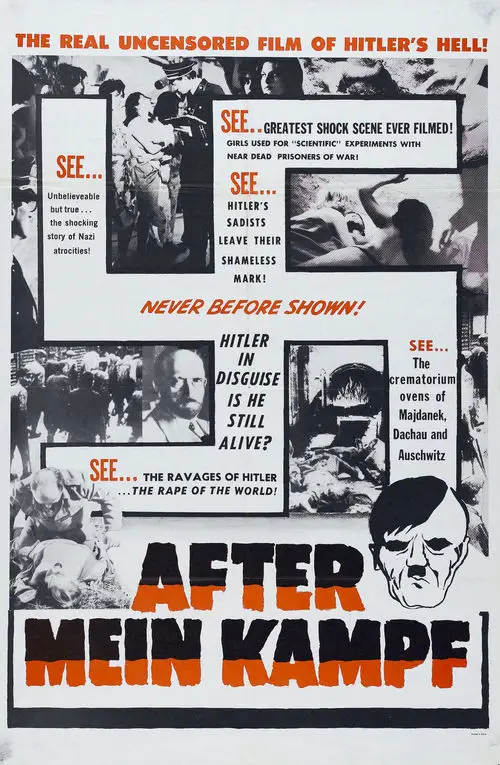
Similar movies
"Mein Kampf" presents the raising and fall of the Third Reich, showing mainly the destruction of Poland and the life Hitler, which is told since he was a mediocre student and frustrated aspirant of artist living in slums in Austria and Germany, until his suicide in 1945 after being the responsible for the death of million of people, and the destruction of Europe. All the footage is real and belonged to a secret file of Goebbels, inclusive with many very strong scenes filmed by Goebbels himself.
Romm's "Ordinary Fascism" pulls out all the stops in its selection of documentary material to draw the viewer not only into absolute horror about fascism and nazism in the 1920s-1940s Europe, but also to a firmest of convictions that nothing of the sort should be allowed to happen again anywhere in the world.
Prelude to War was the first film of Frank Capra's Why We Fight propaganda film series, commissioned by the Pentagon and George C. Marshall. It was made to convince American troops of the necessity of combating the Axis Powers during World War II. This film examines the differences between democratic and fascist states.
In April of 1945, Germany stands at the brink of defeat with the Russian Army closing in from the east and the Allied Expeditionary Force attacking from the west. In Berlin, capital of the Third Reich, Adolf Hitler proclaims that Germany will still achieve victory and orders his generals and advisers to fight to the last man. When the end finally does come, and Hitler lies dead by his own hand, what is left of his military must find a way to end the killing that is the Battle of Berlin, and lay down their arms in surrender.
The movie describes the life of Adolf Hitler from childhood to manhood, and his rise to power. From his poor childhood in Austria, the first world war from his point of view, we see how Hitler was transformed from a poor soldier into the leader of the Nazis, and how he survived all attempts to kill him. We learn of his relationship with his mistress Eva Braun, his decisions and of his enemies inside the Nazi party.
Fact-based World War II story set on Christmas Eve, 1944, finds a German Mother and her son seeking refuge in a cabin on the war front. When she is invaded by three American soldiers and then three German soldiers, she successfully convinces the soldiers to put aside their differences for one evening and share a Christmas dinner.
The Nazis, exasperated at the number of escapes from their prison camps by a relatively small number of Allied prisoners, relocates them to a high-security "escape-proof" camp to sit out the remainder of the war. Undaunted, the prisoners plan one of the most ambitious escape attempts of World War II. Based on a true story.
Told from the perspective of man reflecting on his childhood in Prauge in the early years of World War 2 and the eventual destruction of his family as the Nazis rise to power. The storyline focuses heavily on Jewish-Czech Silberstein family members. Drama was filmed on the real events as a tribute to Mr. Nicholas Winton, the British humanitarian who organized the rescue of 669 children, most of them Jewish, from Czechoslovakia on the eve of the Second World War in an operation later known as the Czech Kindertransport from German-occupied Czechoslovakia and likely death in the Holocaust.
Wounded in Africa during World War II, Nazi Col. Claus von Stauffenberg returns to his native Germany and joins the Resistance in a daring plan to create a shadow government and assassinate Adolf Hitler. When events unfold so that he becomes a central player, he finds himself tasked with both leading the coup and personally killing the Führer.
1942. Joseph is eleven. And this June morning, he must go to school, a yellow star sown on his chest. He receives the support of a goods dealer. The mockery of a baker. Between kindness and contempt, Jo, his Jewish friends, their families, learn of life in an occupied Paris, on the Butte Montmartre, where they've taken shelter. At least that's what they think, until that morning on July 16th 1942, when their fragile happiness is toppled over.
"The Plot to Kill Hitler" is a historical recreation of the 1944 attempt by several German High Command Officers to assassinate Adolf Hitler and take control of the German government. Lead by Wehrmacht Colonel Count von Staufenberg, this group of brave men managed to plant a bomb in Hitler's battlefield headquarters. By sheer luck, Hitler survived the blast and the SS quickly arrested and executed all those involved in the affair.
During the Nazi occupation of Czechoslovakia, surgeon Dr. Franticek Svoboda (Brian Donlevy), a Czech patriot, assassinates the brutal "Hangman of Europe", Reichsprotektor Reinhard Heydrich (Hans Heinrich von Twardowski), and is wounded in the process. In his attempt to escape, he is helped by history professor Stephen Novotny (Walter Brennan) and his daughter Mascha (Anna Lee).
The two-part TV movie Hitler's SS: Portrait in Evil crystallizes that evil by concentrating on two Berlin brothers. In 1931, Helmut Hoffman (Bill Nighy) a brilliant student and self-styled opportunist, joins Hitler's SS. At the same time, his younger brother Karl (John Shea), a top athlete and idealist, becomes a chauffeur for the "S.A." (storm troopers).
It's a dreary Christmas 1944 for the American POWs in Stalag 17. For the men in Barracks 4, all sergeants, have to deal with a grave problem - there seems to be a security leak. The Germans always seem to be forewarned about escapes and in the most recent attempt the two men, Manfredi and Johnson, walked straight into a trap and were killed. For some in Barracks 4, especially the loud-mouthed Duke, the leaker is obvious: J.J. Sefton, a wheeler-dealer who doesn't hesitate to trade with the guards and who has acquired goods and privileges that no other prisoner seems to have. Sefton denies giving the Germans any information and makes it quite clear that he has no intention of ever trying to escape. He plans to ride out the war in what little comfort he can arrange, but it doesn't extend to spying for the Germans.
Tells the story of operation Market Garden. A failed attempt by the allies in the latter stages of WWII to end the war quickly by securing three bridges in Holland allowing access over the Rhine into Germany. A combination of poor allied intelligence and the presence of two crack German panzer divisions meant that the final part of this operation (the bridge in Arnhem over the Rhine) was doomed to failure.
After her Nazi parents are imprisoned, Lore leads her younger siblings across a war-torn Germany in 1945. Amidst the chaos, she encounters mysterious Jewish refugee Thomas, who shatters her fragile reality with hatred and desire. To live, she must trust someone she was taught to hate and face the darkness within herself.
During Nazi occupation, red-headed Bent Faurschou-Hviid ("Flame") and Jørgen Haagen Schmith ("Citron"), assassins in the Danish resistance, take orders from Winther, who's in direct contact with Allied leaders. One shoots, the other drives. Until 1944, they kill only Danes; then Winther gives orders to kill Germans. When a target tells Bent that Winther's using them to settle private scores, doubt sets in, complicated by Bent's relationship with the mysterious Kitty Selmer, who may be a double agent. Also, someone in their circle is a traitor. Can Bent and Jørgen kill an über-target, evade capture, and survive the war? And is this heroism, naiveté, or mere hatred?
A chronicle of events that led to the British involvement in the Crimean War against Russia and which led to the siege of Sevastopol and the fierce Battle of Balaclava on October 25, 1854 which climaxed with the heroic, but near-disastrous calvary charge made by the British Light Brigade against a Russian artillery battery in a small valley which resulted in the near-destruction of the brigade due to error of judgement and rash planning on part by the inept British commanders.
The murder of a prostitute in Nazi occupied Warsaw draws Wehrmacht Major Grau into an investigation where the evidence points to one of three high ranking Generals. The trail leads Grau from Warsaw to Paris and straight into the 1944 plot to assassinate Adolf Hitler, of which two of the Generals are deeply involved. Grau's case goes unfinished and it is not until 1965 when the true killer is brought to justice.
Max Manus is a Norwegian 2008 biographic war film based on the real events of the life of resistance fighter Max Manus (1914â96), after his contribution in the Winter War against the Soviet Union. The story follows Manus â played by Aksel Hennie â through the outbreak of World War II in Norway until peacetime in 1945.
Broadway gambler 'Gloves' Donahue wants to find who killed the baker of his favorite cheesecake. He sees nightclub singer Leda Hamilton leaving the bakery. When her boss Marty's partner Joe is murdered, Leda and her accompanist Pepi disappear. It turns out that beneath all the mystery is a gang of Nazi operatives planning to blow up a battleship in New York harbor.
A veteran sergeant of the World War I leads a squad in World War II, always in the company of the survivor Pvt. Griff, the writer Pvt. Zab, the Sicilian Pvt. Vinci and Pvt. Johnson in Vichy French Africa, Sicily, D-Day at Omaha Beach, Belgium and France, ending in a concentration camp in Czechoslovakia where they face the true horror of war.
As the Second World War breaks out, German freighter captain Karl Ehrlich is about to leave Sydney, Australia with his vessel, the Ergenstrasse. Ehrlich, an anti-Nazi but proud German, hopes to outrun or out-maneuver the British warship pursuing him. Aboard his vessel is Elsa Keller, a woman Ehrlich has been ordered to return to Germany safely along with whatever secrets she carries. When Ehrlich's fiercely Nazi chief officer Kirchner commits an atrocity, the British pursuit becomes deadly.
The invasion of a village in Byelorussia by German forces sends young Florya (Alexei Kravchenko) into the forest to join the weary Resistance fighters, against his family's wishes. There he meets a girl, Glasha (Olga Mironova), who accompanies him back to his village. On returning home, Florya finds his family and fellow peasants massacred. His continued survival amidst the brutal debris of war becomes increasingly nightmarish, a battle between despair and hope.
Hitler no longer believes in himself, and can barely see himself as an equal to even his sheep dog. But to seize the helm of the war he would have to create one of his famous fiery speeches to mobilize the masses. Goebbels therefore brings a Jewish acting teacher Grünbaum and his family from the camps in order to train the leader in rhetoric. Grünbaum is torn, but starts Hitler in his therapy ...
Based on the true story of the greatest treasure hunt in history, The Monuments Men is an action drama focusing on seven over-the-hill, out-of-shape museum directors, artists, architects, curators, and art historians who went to the front lines of WWII to rescue the worldâs artistic masterpieces from Nazi thieves and return them to their rightful owners. With the art hidden behind enemy lines, how could these guys hope to succeed?
Summer 1943. Tuur and Lambert are best friends. The surrounding of their idyllic village has no secrets for the teenagers. From the farm of Lamberts dad to the marl caves in the woods - it's their world. But the war is closing in and is about to change their lives forever. Tuurs dad joined the resistance and even his big brother seems so be part of it. Lamberts family on the other hand choose to obey the Germans. Then a new girls from the city shows up, befriending the boys but telling her secret to only one of them. A choice that separates the boys and ultimately gets her in trouble. Tuur not only risks losing his friendship with Lambert, but even his whole family. He will have to stop at nothing to save both.
Soviet agent Fedotov is air-dropped into Nazi occupied land. He changes over into Mr. Ekhert, a German entrepreneur wishing to take advantage of eastern worker slave labor in occupied Ukraine. Ekhert (Fedotov) enters into a partnership with a German entrepreneur who's son, Willie, is a high ranking Nazi. Together they go to Vinnitsa, Ukraine and start a factory. Fedotov begins seeking contacts with headquarters, but faces problems when a Ukrainian Nazi collaborator manages to infiltrate the Soviet partisans.
Released three days after Adolf Hitler became Reichskanzler, it was the first film to have its screening in Nazi Germany. It became a symbol of the new times touted by the Nazi regime. The title (literally "morning-red") is the German term for the reddish coloring of the east sky about a half hour before the sunrise. Dawn was the U.S. title. In 1915, Captain Liers, commander of a submarine is leaving his hometown, where he, his 2nd officer and the radio-operator, spend their shore leave. On patrol they sink a British armored cruiser, but while returning to their harbor, they're attacked. They're able to sink it, but the trap has alarmed a destroyer, that sinks their sub. The sub lays on the sea bed at 200 feet, and except for the bridge, it is full of water. 10 members of the crew survived, but there are only 8 rescue devices. Liers gives the order, that the crew shall use them, but they disobey, either all get out or nobody...
Last months of World War II in April 1945. As the Allies make their final push in the European Theater, a battle-hardened U.S. Army sergeant in the 2nd Armored Division named Wardaddy commands a Sherman tank called "Fury" and its five-man crew on a deadly mission behind enemy lines. Outnumbered and outgunned, Wardaddy and his men face overwhelming odds in their heroic attempts to strike at the heart of Nazi Germany.
Every foot of film is authentic German footage -- uncovered in the secret archives of the SS Elite Guard and suppressed by Goebbels himself as too strong even for his own savage propaganda. Mein Kampf has created a sensational international impact and has been hailed as a stunning historical document. It has created a storm wherever it has been shown throughout the world while reaping enthusiastic reviews and acclaim. A brilliant achievement in motion picture documentation, Mein Kampf probes deep into the rise and ruin of the Third Reich and the evil genius that created it. Through stunning use of rare footage, it mercilessly asks and answers a central question that has haunted the mind and heart of the world: "How was such a thing allowed to happen?"
Der Sieg des Glaubens (English: Victory of Faith) (1933) is the first documentary film directed by Leni Riefenstahl, who was hired despite opposition from Nazi officials that resented employing a woman â and a non-Party member too. Her film recounts the Fifth Party Rally of the Nazi Party, which occurred in Nuremberg from 30 August to 3 September 1933.
Four volume documentary set ("Adolf Hitler", "The SS Blood and Soil", "The Enigma of the Swastika", and "Himmler The Mystic") containing mainly B&W as well as some color archival footage, with narration explaining the influences of alternative belief systems (occult, paganism, mysticism, etc) on the Nazi ideology and Hitler's personal philosophy. Also documents the history and development of the ideas and symbols that would be used along with eugenicist racial politics to perpetrate the murder and oppression of millions during World War II.
© Valossa 2015–2026
| Privacy Policy
